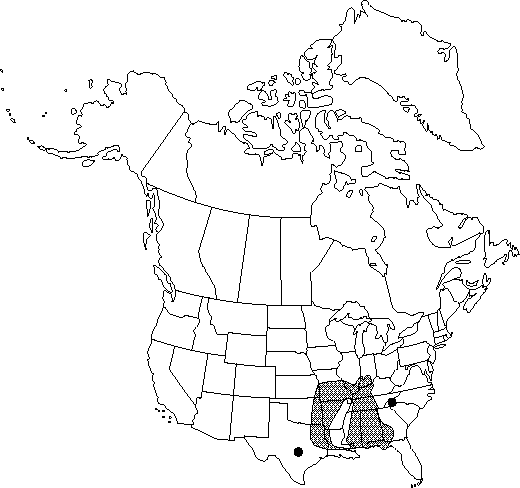Aristolochia tomentosa
Bot. Mag. 33: plate 1369. 1811.
Lianas, twining, to 25 m, woody. Young stem ribbed, tomentose. Leaves: petiole 1-5.5 cm. Leaf blade ovate to reniform, 9-20 × 8-15 cm, base cordate, sinus depth 1-2 cm, apex obtuse to acute; surfaces abaxially tomentose; venation palmate-pinnate. Inflorescences on new growth, axillary, solitary flowers; peduncle not bracteolate, 1-7 cm. Flowers: calyx yellow-green, sharply bent; utricle pendent, globose to cylindric, 0.5-1 × 0.5-0.8 cm; syrinx absent; tube bent, cylindric, 1-3 × 0.5 cm; annulus rugulose; limb yellow, 3-lobed, lobes triangular, 2 × 2 cm, glabrous; gynostemium 3-lobed, globose, 3 mm; anthers 6; ovary 6-locular, 1-7 cm. Capsule ellipsoid to cylindric, 6-8 × 4-6 cm, dehiscence basipetal; valves 3; septa entire, not attached to valves. Seeds flat, triangular, 1 × 1 cm. 2n = 28.
Phenology: Flowering late spring–summer.
Habitat: Alluvial soils along rivers and streams
Elevation: 0–500 m
Distribution

Ala., Ark., Fla., Ga., Ill., Ind., Kans., Ky., La., Miss., Mo., N.C., Okla., Tenn., Tex.
Discussion
Aristolochia tomentosa has escaped from cultivation in various places, including Virginia; this is not documented.
Selected References
None.